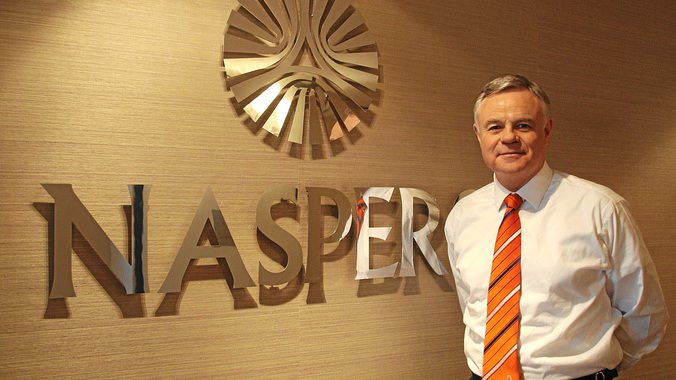HONOR X9c: A Game-Changer for South African Smartphone Innovation HONOR has once again raised the bar in the mid-range smartphone market with the launch…
How Naspers could help find SA’s next great tech startups [Opinion]

Former Naspers CEO Koos Bekker has always been vocal about the lack of good tech entrepreneurs in South Africa. It’s a statement that makes many wince, and many defensively start rattling off a list of successful local tech entrepreneurs.
Why, they say, there is Takealot.com, led by former Naspers man Kim Reid, and the edtech business Getsmarter that was recently sold for $100-million. And many more.
But people misunderstand Koos. He is not talking about these businesses at the level they think he is. When he says the country has no great tech entrepreneurs, he is thinking on a much bigger scale.
This is a man who bought a stake in the massive gaming and social network conglomerate Tencent, and who once flirted with buying a stake in a fledgling LinkedIn many years ago (It didn’t happen, and not without some regret).
The planned Naspers fund is a huge boost for the local startup industry, and maybe where the company can find its first local organic tech success
The truth of the matter is that this country, for all its tech talent, has yet to produce a “unicorn” in the technology wave of the last 20 years.
A unicorn is defined as a privately-held startup valued at over $1-billion. It was a term coined in 2013 by venture capitalist Aileen Lee, choosing the mythical animal to represent the statistical rarity of such successful ventures.
Well-known tech blog, TechCrunch, says there are about 279 unicorns as of this year, including companies like Uber, Xiaomi, Airbnb, Palantir and Pinterest.
And now Naspers, under the leadership of relatively new CEO Bob van Dijk, is committing billions to a new fund to support tech entrepreneurs in the country.
Read more: Naspers to launch R1.4bn fund to back SA tech startups
You would say that “it is about time”, but the reality is that Naspers has been investing in tech entrepreneurs for a while. The company some time ago bought a stake in the doomed MXit, betting that the then-wildly popular chat app would be able to export its low-cost communication model to other emerging markets.
Unfortunately Mxit’s main platform caught alight, and not in a good way, and Nokia’s Symbian “burning platform” took the company down and many businesses with it.
Read more: Mxit: the rise and collapse of ‘Africa’s largest social network’
Read more: Heunis: Mxit could have been a ‘major success’ story, but I was burnt out
Naspers also bought price-comparison site, Pricecheck, but it underperformed, which prompted the founding entrepreneur to buy it back with the help of a VC. Among other notable local acquisitions, Naspers bought Autotrader and very recently, webuycars.co.za.
No-one can take anything away from the sheer brilliance of Bekker and Naspers. Here was a newspaper company stuck in the old days, but Bekker took a bet on this new medium called the internet, and he won – and won big with Tencent.
Searching for local internet success story
But in all this success, there lies one area Naspers still has to conquer: a local organic internet success. No-one would deny that Naspers has been a brilliant tech investment vehicle, but the company has yet to build its own truly successful – and we are talking a “Koos Bekker-successful” – internet business.
You may point to News24, which has for some time been the biggest news site in the country, smashing all rivals into submission. But it’s a success in terms of readers, not revenue.
Like most online publishing businesses, News24 has been disrupted by Google and Facebook’s advertising model, which is chewing up the digital marketing pie. Media24’s top magazines, so-called dinosaur print titles, still make more revenue than the mighty News24.
Naspers’ flagship ecommerce site, Kalahari.net never quite cracked it either, and was being beaten hands down by its rival Takealot. Naspers eventually invested in Takealot for just under R1-billion, and the two businesses were eventually merged, which spelt the final end for Kalahari.
Another organic build of substance was Showmax, an ambitious and well-executed streaming play. But the business just could not match Netflix’s sheer variety of content. It is now telling that Naspers is exiting its TV business, the next big media format facing massive internet disruption.
So, over the next three years, Naspers says it will invest around R4.6-billion in the South African technology sector, with R3.2-billion allocated to the development of its existing technology businesses, including OLX and Takealot. Of this, R1.4-billion will be committed to Naspers Foundry, to help South African tech entrepreneurs grow their startups.
It’s a huge boost for the local startup industry, and maybe, just maybe, where Naspers can find its first local organic tech success.
Read more: Pick a sector, add internet and your firm could be worth millions [Opinion]
Read more: Time for startups to get over myth of the ‘one big idea’ and just get going [Opinion]
Read more: What really is the secret to getting a VC deal? [Opinion]
Read more: SA’s startup ecosystem offers a positive vision of country’s future [Opinion]
Read more: Indonesian unicorn shows Silicon Valley model can’t beat going local [Opinion]
Read more: What’s the secret ingredient that makes entrepreneurs successful? [Opinion]
Matthew Buckland is an investor, entrepreneur and the founder of Burn Media Group, which publishes Ventureburn.com. This column was first published in Business Day. See that version here.
Featured image: Former Naspers CEO Koos Bekker (via Facebook)


